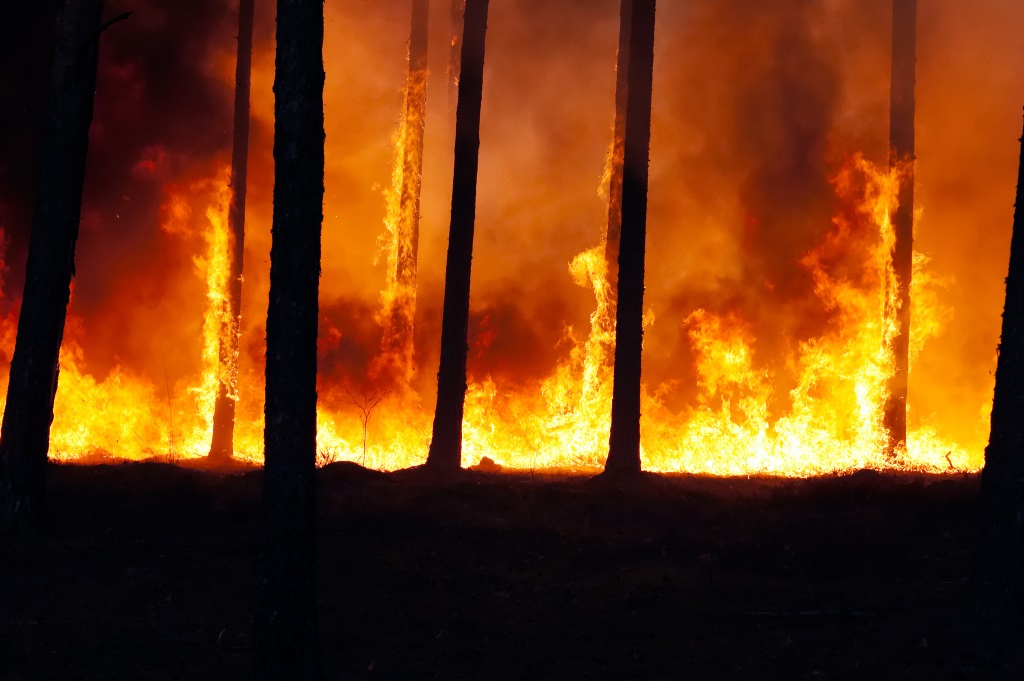People don’t bother with understanding. Really, they don’t. When I tweet something like “Maybe it’s…

How to Save Your Business
When it comes to transforming their organizations, people often ask me the same silly questions.
Imagine a village of people who have successfully lived in a forest for hundreds of years. Some have grandiose tree houses; others have excavated spacious homes under the ground. Some villagers are specialized woodcutters; others prefer to hunt or gather nuts and fruit. And a few of the villagers are officials who take care of this small but thriving society. They see to it that all specialist jobs are adequately covered and that all are properly represented on the Village Council.
Recently, however, there has been some unrest in the village: There is a strong wind from the west and it carries with it the faint odor of… fire.
=8-C
This is a metaphor that we can use for almost every company that has made good money in the past and that is now facing the threat of eradication by globalization, innovation, and a relentless pace of change.
As a public speaker, I travel around the world quite a bit, and I encounter many of such villages, small and large. Fortunately, almost everyone I meet has realized that their village cannot escape the fire. To survive, the villagers will have to move elsewhere. But the people in these villages have a lot of questions for the traveling visitor:
Where is the environment safe?
Everywhere but here! The question assumes that there are safe and unsafe places for organizations to exist. Well, guess what? The world of business is changing faster and faster. Most places are variously safe and unsafe at different times. Fires, tsunamis, and earthquakes can now happen everywhere. The goal for a business should not be to resettle in a “safe” environment. Workers should learn to become organizational nomads: get used to the idea of packing your bags and relocating the whole organization to another business environment.
Which framework do we implement?
A framework for what? Do you want a predefined migration plan? Do you want a Gantt chart for turning a village into a caravan? I suggest you get people to figure out how to make vehicles from your tree houses and appoint some scouts who are willing to explore other environments. You can pick up books such as Out of the Forest, Escape Your Tree, and Business Nomads. They may speed up your learning. (You’re not the first to run from a fire.) You move your village by forcing everyone to accelerate their exploration and learning, not by arguing about the best framework for implementation of a plan.
How long will the transformation take?
Every time you ask a silly question, it takes one minute longer. How long does it take to get a group of people on the move? It depends on how many people you have, how willing they are to leave their homes behind them, how smart they are learning new skills, and whether the fire is still far enough so that you have some time to properly pack your bags. If you can see the fire, drop everything and run! Travel will be slower without preparations, but at least you’ll live. As a villager, you can estimate all these things better than I can, as a visiting traveler.
Should the transformation be bottom-up or top-down?
Is that in any way relevant? The fire is coming sideways! Everyone in the village will have to prepare for the move. Some will start earlier than others. Some will learn faster than others. And some will do more than others. Failed transformations are those where people waste time debating endlessly who should take the lead. The fire doesn’t care if the officials are leading the escape or not. Leaders are those whose bags are packed first and then show others how to do it. In an escape, there’s no bottom-up and top-down. There’s only inside-out.
How do we convince the managers?
Convince the managers of what? That there’s a fire coming? If they don’t smell it, I would start packing my bags without permission of the managers. But managers often know quite well that the village isn’t safe anymore. The usual problem is that they want to manage the migration the way they always managed the village. They want to apply the laws for tree houses also to mobile homes. But a band of travelers is different from a group of villagers and thus, they need different rules. Tell your managers that the road trip needs management with new rules.
Are OutOfTheForest and BusinessNomads just buzzwords?
Who cares? Smell the fire! Don’t just stand there discussing proper terminology. Start leading the escape!
Organizations change and survive when people accelerate their pace of exploration and learning. The way a company was managed in its old environment doesn’t work that well when it’s moving about, finding a new environment. And another one. And another one. Even worse, none of the same rules apply to the transformation itself. The migration, at least in the beginning, is all improvisation!
So, instead of your usual plans, targets, performance evaluations, committees, and policies, I suggest you hold a regular corporate huddle or town hall meeting and get everyone involved in updating each other on the status of the danger, the opportunities for safer places, and the progress of the travel preparations. Each person, from their own discipline, takes responsibility for learning how to be a valuable community member among the new business nomads.
That’s how you save your business.
photo: (c) 2006 Ervins Strauhmanis, Creative Commons 2.0



